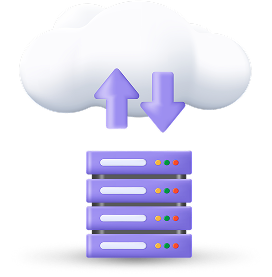Unlock The Power of Managed Cloud Services With HOSTNOC
Realize the full potential of fully managed cloud solutions with HostnocŌĆÖs Managed Cloud Hosting. Tailored to meet the needs of small and mid-size businesses, our managed cloud services offer seamless performance, security and flexibility to help your company grow without the hassle of managing complex cloud environments. With round the clock expert support and transparent pricing, we ensure your cloud infrastructure is always optimized and reliable.



































